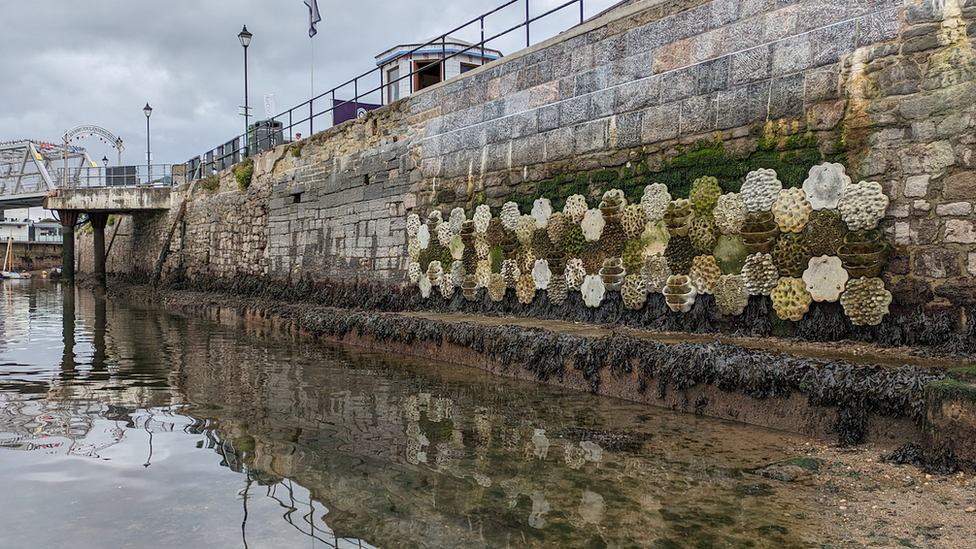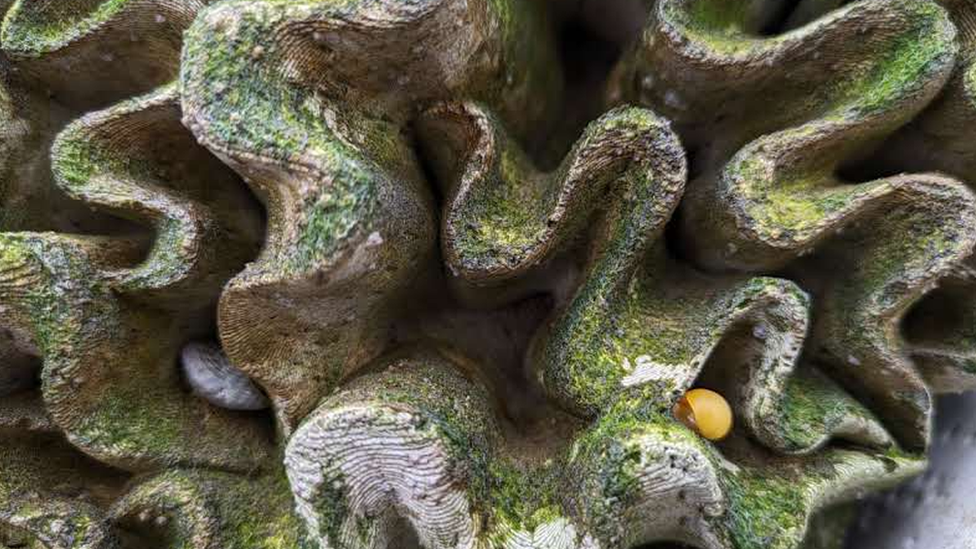UK's largest living sea wall created in Plymouth
- Published

The living sea wall in Plymouth is the largest of its kind in the UK
The UK's largest living sea wall has been created in Plymouth.
The 40ft (12m)-long section of specially-designed concrete panels has been fixed to the sea wall close to the Mayflower Steps memorial.
Scientists will monitor the project over the coming months to assess any different species of flora and fauna that have taken up residence.
They hope it could become home to limpets, barnacles, anemones, seaweeds, sponges and other native species.

Scientists hope the living sea wall will become home to a variety of native marine species
The project is being led by the University of Plymouth together with support from organisations across the world.
Dr Louise Firth, associate professor of marine ecology at the University of Plymouth, said: "We have been investigating how to enhance biodiversity on sea walls locally for years.
"These efforts have all been conducted at small, experimental scales but the Living Seawall in Plymouth is the first large, real-world-scale installation in Britain.
"We are very excited to work with the global community to build the evidence about the ecological benefits for both new and existing artificial structures."
Research in Sydney Harbour has shown that after two years living sea walls already support at least 36% more species than plain, unmodified seawalls, with as many as 85 species of invertebrates, seaweeds and fish living and growing on the panels.

Follow BBC News South West on Twitter, external, Facebook, external and Instagram, external. Send your story ideas to spotlight@bbc.co.uk, external.
Related topics
- Published20 June 2023